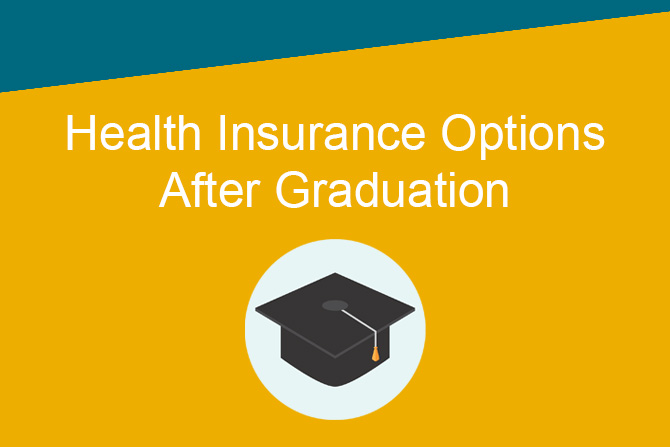Health Insurance After Graduation: Know Your Options
June 04, 2019

Graduating from college can be one of the most exciting events in a young person’s life. It’s a time to celebrate the hard work that has now led to a degree. It’s also a time to look toward the future and the opportunities that lie ahead. Of course, there are several practical issues to address, like getting a job and perhaps deciding where to live.
Another very important consideration that’s easy to overlook is one’s situation regarding health insurance. It probably hasn’t been top of mind, especially if the student has been covered under their parents’ plan. This matter may not have required any special attention until now.
The fundamental scenario to avoid is suddenly finding oneself without any coverage at all, since medical expenses can mount up quickly. It’s easy to get distracted with everything else going on. So the question is, what are the options for insurance after graduation?
Luckily there are several options, and hopefully one will be the right fit for the individual’s particular situation. It’s all part of moving out into the “real world.”
Stick with the Parents
Before the Affordable Care Act (ACA), health plans would not cover people after they graduated from college. Now, they can stay on that plan until age 26.
Moreover, there are essentially no restrictions on staying put. This extension can provide time for the grad to find a good job that provides employer-sponsored health care coverage, for example.
Go Short-term
The latest federal rules set maximum durations for short-term plans that range from 364 days to three years, including renewals. But a plan can be purchased at any time and can take effect immediately. However, states have the option to apply tighter rules, which can include not offering these types of plans at all.
Coverage is usually very basic, but it can be a good option while finding work or to fill a waiting period until other coverage kicks in.
Is Medicaid an Option?
Another possible alternative, Medicaid, is based on income level. If you qualify, enrollment can be done at any time of year, it will cover per-existing conditions, and it doesn’t have a premium to be paid.
BYOC (Buy Your Own Coverage)
Individual, ACA-compliant plans offer standard ranges of traditional, more extensive coverage. They can be purchased directly through an agent or broker as well as a state health insurance exchange. Exchange plans may offer subsidies for the cost of premiums and cost-sharing reductions. Requirements for these aspects are based on income levels. ACA-compliant coverage is available only during specific open enrollment periods, but these can be waived under certain circumstances called “qualifying events.”
Get Under the Employer Umbrella
This is likely the most attractive option. These plans offer a range of coverage types and levels, co-pays, deductibles, etc., with a portion of the cost assumed by the employer. It’s a good idea to scope out the details of coverage from a potential employer. You may even find the level of coverage might outweigh another job offer with a higher salary. As we’ve mentioned above, there will likely be a gap between applying and having the coverage in place which is where short-term coverage can come in handy.
With any major decision like this, it’s smart to get a head start. Do some research well before graduation day to get a handle on the options. It will go a long way toward relieving the stress of such an important transition and staying focused on the excitement of a new stage in life.









